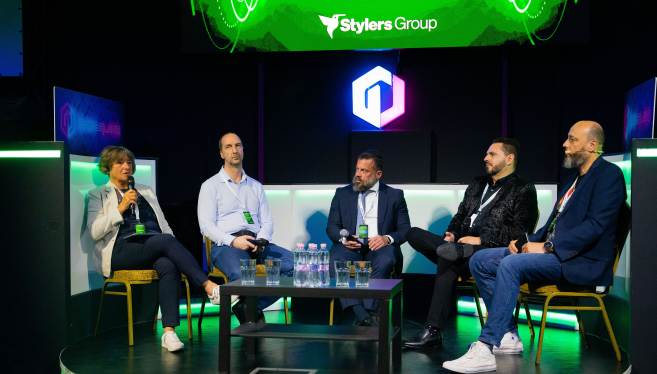TECH NEWS – The human brain cannot keep up with the rapid development of artificial intelligence! And what about immortality? Experts at the Protechtor Future Summit shed light on the most pressing questions.
Heated debates and groundbreaking ideas characterized the recent Protechtor Future Summit, where Hungary’s renowned experts discussed AI and life extension. Prominent figures such as Júlia Király, Dr. Péter Oszkó, and Dr. György Tilesch participated in the event. The goal was to highlight the societal impacts and challenges of artificial intelligence and life extension.
The AI Explosion: AI has received enormous attention in the media and professional circles in the past six months, thanks to the advent of large language models. The spring event of the Protechtor Future Summit focused on the societal justice aspect of artificial intelligence, with notable thinkers such as economist Júlia Király, Orthodox Rabbi Jonatán Megyeri, former Finance Minister Dr. Péter Oszkó, and AI expert Dr. György Tilesch discussing the topic.
Exponential AI Development: Dr. György Tilesch initiated the discussion, explaining that technological and societal development can follow various patterns. The current fourth industrial revolution is seen as cyclical by many experts, but AI development is more exponential. This can be alarming since the human brain is not prepared for such rapid changes. Historically, it takes about ten years for society to adapt to a technological revolution. Dr. Tilesch is optimistic, as AI can assist in many areas, but he emphasized the responsibility of political leaders in regulating the technology and educating the public.
Júlia Király on Social Justice: Júlia Király believes that there is great uncertainty in the world, but humanity has made progress in life quality and expectancy over the past 200 years. Regarding social justice, fairness is key, as inequalities grow. However, as long as the lower strata improve and do not regress, there is hope for a fair global society.
Jonatán Megyeri on Historical Lessons: Jonatán Megyeri pointed out that progress has always had a price, which humanity has paid. It is crucial to have political leaders who have learned from history and make responsible decisions about technology. Given the current dominance of profit-oriented tech companies, it is important to approach changes responsibly on both individual and societal levels.
Dr. Péter Oszkó on Business Interests Around AI: Dr. Péter Oszkó believes that the current interest in AI is partly artificial and driven by business interests. Humanity lives better than 100-200 years ago, but income inequality is increasing, and technological progress is narrowing the circle of true winners. Broad awareness and education are crucial as AI tests human adaptability more than any previous technology.
Do We Want to Live for 1000 Years? Life sciences are also rapidly evolving, with life extension and immortality becoming focal points. Futurist Árpád Rab highlighted that the expected lifespan has doubled to 90 years in the past century, and the goal is to push this to 100-120 years. The aim is to slow aging and stay healthy for as long as possible. AI expert Csaba Kerepesi said that life-extension treatments will eventually be funded by governments due to the economic interest in aging societies.
The experts agreed that environmental factors will continue to play a crucial role in life quality, regardless of scientific possibilities. It matters where one lives, their lifestyle, and diet.
















Leave a Reply